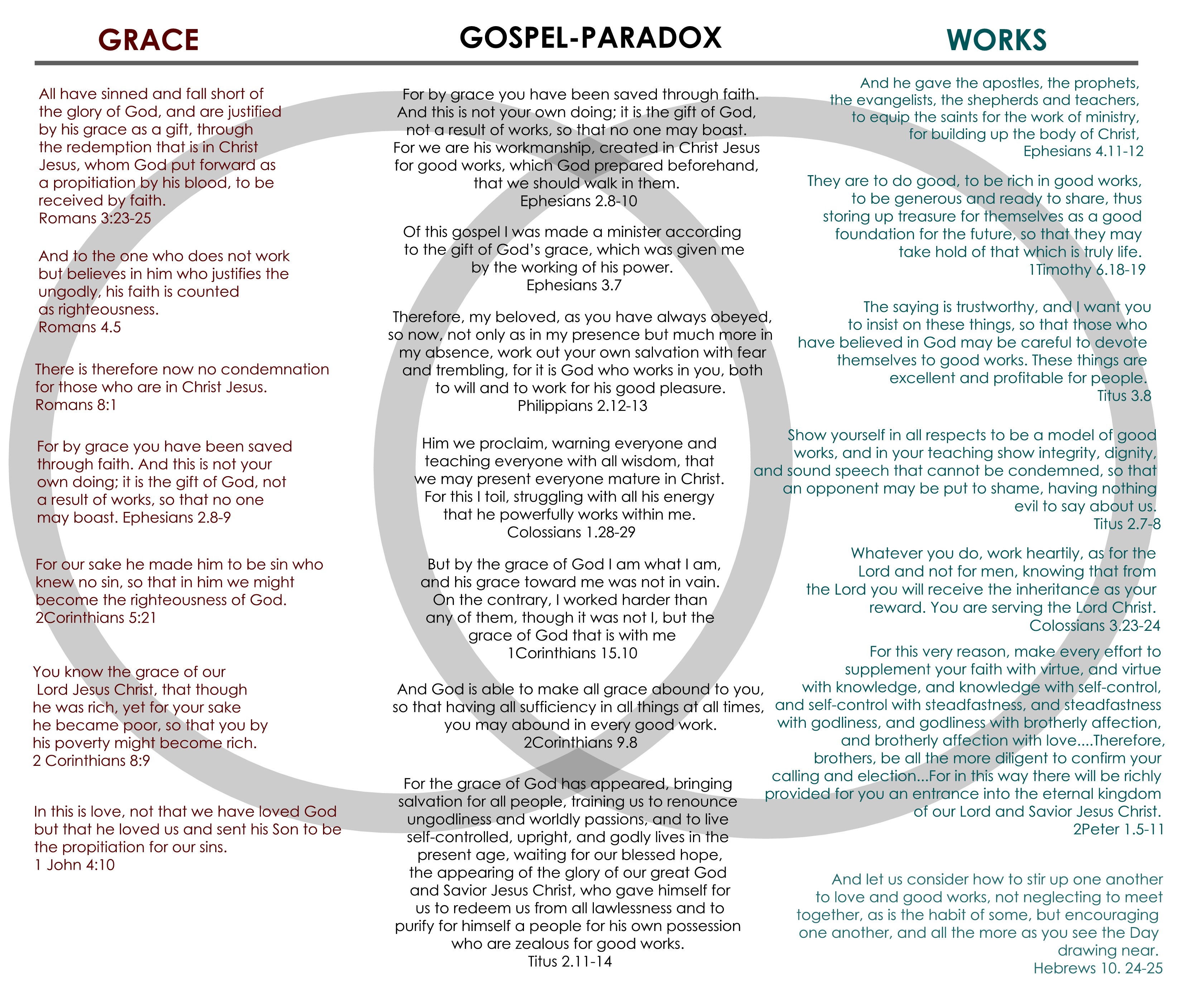So, do women have to wear head coverings or not? I believe the answer is no. Of course, there are a few Christians groups that continue the practice. Many individuals, groups, and denominations use this text to support their belief and, although we disagree, I respect their faithful commitment to Biblical authority. The question is not whether the practice should be stopped by churches that do, but whether or not it should be required for all of Christian churches who don’t.
groups that continue the practice. Many individuals, groups, and denominations use this text to support their belief and, although we disagree, I respect their faithful commitment to Biblical authority. The question is not whether the practice should be stopped by churches that do, but whether or not it should be required for all of Christian churches who don’t.
I believe that asking the right questions reveals this to be a practice that is not normative, nor required. The New Testament does not evidence a clear command to practice this in all churches nor is there a repeatable pattern or form in Paul’s other letters. Church history does indicate this practice became somewhat normative but, as with many things, recent church history has eliminated the practice as a whole.
As with all texts, we must not begin with “What this means for me/us?” before we examine the author’s intent for the passage. In this case, Paul is giving what reads like clear instructions to practice head coverings. He either intends for it to apply specifically to Corinth, to all churches like Corinth, or perhaps to all churches everywhere. Remember that Corinth is the most messed up church in the First Century. As they allow themselves to be shaped by the world (vs. shaping it), this young church struggles with EVERY KIND of serious problem—some are sleeping together, some divorcing each other, others are suing one another, and a few are even getting drunk at the communion meal. The church is wild, chaotic, and broken.
The first 10 chapters evidence Paul’s effort to systematically align them back with the gospel. Yes, they are free in Christ, but they have mistakenly begun to believe that it means they a freed for themselves. He begins by reminding them of their identity in Christ–they were freed FROM sin TO righteousness. Then he proceeds to deal with their relationship with one another, specifically with all the divisions that occur. Additionally, he speaks directly to sexual sin in the church and how marital relationships should be conducted. Eventually, in chapters 8-10, he instructs them how to deal with the sin outside the church and, specifically, how to freely (but safely) engage with sinful world full of pagan temples where non-believers gather to worship.
So why after spending three chapters on Christian liberty does Paul start talk about something that feels so restrictive like head coverings in a church? Simple. They are doing the very thing Paul warned them about–abuse of freedom. From chapter 11 through 14, Paul deals with the chaos in the church’s own gathering. He uses the phrase, “when you come together” six different times across the four chapters. He uses the term “order” several times and dedicates an entire chapter to diversity AND unity in the one body of Christ. Clearly, Paul is trying to restore some sense of terms like orderliness and harmony to what has become a church worship service characterized by chaos. Their worship service is bringing more shame to the Lord’s name, and more harm to one another, than God.
With this in mind, let us return to the head covering. Here is the bottom line, through the use of head coverings in this culture, Paul is trying to restore something important for all cultures. Head coverings in this church symbolize something that should be displayed in all churches. In other words, the head coverings
The Authority of God
A head covering upholds the authority structure God established in creation. The fifth commandment, of the 10 C0mmandments, is to honor your father and mother. This first four commands deal with man’s relationship to God. The last six, with man’s relationship to one another. The fifth commandment is evidence of God’s built-in authority. In Romans 1, we see that when men refuse to acknowledge God, he gave them over to a debased mind. Among other more horrible sounding things, that broken mind resulted in disobedience to parents (Romans 1.30). A rejection of a parents authority, or a governments, or a husband’s, or a pastor’s, is really a rejection of God’s authority over us.
All that to say, when people walk into our church our gathering must display the authority of God. This happens partially by what we do (Communion with heads of households) but also what we say. We must be a church vocal about men leading their homes, wives submitting to their husbands, children obeying their parents, and members trusting their pastors. Without doubt, this is counter cultural and even counter intuitive in today’s culture. All the more reason to make it clearly visible.
The Diversity in God
A head covering also upholds the diversity of God. Specifically, it upholds the distinctions between men and women. Though created equal, men and women are very different. They feel differently, think differently, and act differently. God designed men and women to complement one another. Men were created to work, to bring order out of chaos. Women were designed to help them with their work, to bring beauty out of the order he created. In the context of a worship service, we see that men and women worship differently–but they both worship! Men and women both contribute to the worship service. They teach, they pray, they sing, they serve, they fellowship.
In today’s culture, we see a pervasive androgyny taking over. It is becoming harder to distinguish men from women. This not only how they dress, but how they act and even sound. It should be no surprise to us that, with rejection of God’s authority, Romans 1 says men and women became sexually confused. Today, that confusion has led the blurring of gender-distinctions. The church has tried to combat this, often, unsuccessfully. In today’s church, we often see churches fall in the ditch of masculinity or femininity. Books are written like “Why men hate church” decrying how “girly” , and therefore unattractive to men, the church has become. In response, churches become super-machismo and treat women like 2nd class citizens. Both are wrong. When people walk into our gathering, our hope is that they see the diversity of God. We want everyone to see and hear men being called to be men, and women being challenged to be women. We want men to be living out their headship with Christ and their wives more beautiful because of it. We want to see men and women building the church, shaping the church, as they worship God through the church.
The Reverence for God
Finally, and most importantly, head coverings represent a reverence that we are in danger of losing in the church. In recent years, the seeker sensitive movement ravaged the sacredness of our gatherings. Our gatherings have become very relaxed. As almost an apology for a history of hiding away from the culture, we do everything we can to make people comfortable. We have good coffee, sugary treats, plush chairs, cool videos, concert like music, creative kid’s ministries everything and anything to make people feel comfortable and not bored. And as result of building such a glorious relaxed atmosphere, we foster relaxed hearts. People show up late, without their Bibles, half dressed, half asleep, otherwise unprepared to worship and be in the presence of the God of the universe.
At least the putting on, or taking off of head coverings symbolized something different was about to happen, something special. If the church has lost that, I’m not sure how we can get it back. Perhaps it is through big things like liturgy, perhaps it is through small things like prayers. I do know that, when we gather, people need to see is display a tangible, palpable, and uncompromising reverence for God.
In conclusion, I have the freedom not to have head coverings, but we have the responsibility to uphold these three things in our worship. These things may look and feel different than the church 2,000 years ago, but they are not optional for the church in the 21st Century. These things are at our core, they display the glory of God and identify us as the people of God.



